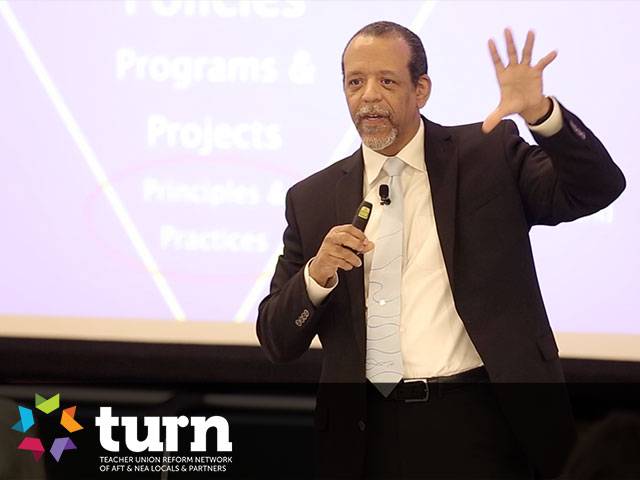Video 5 Author and Harvard professor Ron Ferguson talks about the importance of standardized tests, saying they measure the skills for which employers will pay. While he does not defend the current system, he does share that his image for the ideal system includes standardized testing.
Video Transcript
[00:00:08] Standardized tests measure skills the employers pay for. Okay? They measure skills employers pay for. They measure skills that enable families to take care of their kids. There's nothing about the current system that I want to defend today. What I do want to do is help to imagine the ideal system. Okay? And as I try to imagine the ideal system testing is in there. Not necessarily the kind we do now, but it's in there. We're measuring our output. [00:00:38] I have a colleague who talks about you're trying to lose weight, but you have no scale. You want to be able to step on the scale occasionally. See how am I doing. I got interested in standardized test scores in 1989. I'm an economist by training. My motivation to be an economist was that I wanted to help make life better for the kinds of folks in the neighborhood where I grew up. [00:00:59] I grew up in the blue-collar neighborhoods of Cleveland, Ohio. Our family was better off than some others. My father was a bus driver and a house painter. My mother was a stay at home mother, but she took one or two courses at a time the whole time that we were growing up. She graduated from college a year before I did, and for the rest of her career, she was a school teacher, elementary teacher in Cleveland, Ohio, okay? [00:01:19] Folks in our neighborhood were often not quite as well off as we were, and it seemed like it'd be nice to grow up and have a job to help folks. It seemed like there were economic problems. I became an economist. Okay? You try to want to bring business to the area. You want to help raise people's incomes and wages. Help people accumulate wealth and so on. [00:01:36] Well, 1989 we started working with data that had been collected a decade earlier in the National Longitudinal Survey of Youth. National Longitudinal Survey of Youth has about 12,000 kids who were ages 14 to 21 in 1989 when it started. The tested all these kids with the Arms Forces qualifications test. So we had test scores from 1989 for 14 to 21-year-olds. Then a decade later, they were 24 to 31-year-olds. We could take those test scores and see how they predicted the earnings of these young adults. [00:02:12] Dropped the test score and the wage equation, knocked out most of the black-white hourly earnings gap. The majority of the hourly earnings differences between blacks and whites could be predicted by test scores measured while they were teenagers. At which point, I was thinking, "We ought to stop fighting these tests and just prepare our kids to pass them." All right? These tests are measuring skills that employers pay for. [00:02:36] And increasingly during the 1990s, the decade after that, we started to do the research just showing why it mattered that kids had these skills. There had been actually increasing wage inequality between groups during the late 70s and through the 80s. Even in a period that test score gap between blacks and whites had actually been narrowing during the 1990s, but the wage gap had been increasing. And what we figured out was that while the test score gap was narrowing, the value of the skills that that gap represented was rising even faster. Okay? [00:03:13] So you think of a test score gap of 10 points was worth a $1 an hour maybe. Well as time went, a test score gap of five points was worth $2 an hour. All right? So you're narrowing the gap, but you're not narrowing it fast enough to narrow the earnings gap was what was happening during the 80s. [00:03:34] A kid is going to go look for a job. He knows he's got the skills. He's feeling pretty confident to step out. He's more likely to go. Kid is worried about "I probably don't have the skills. I'm never gonna get the job. They're never gonna hire me." Hard to make yourself get up and go out there.









